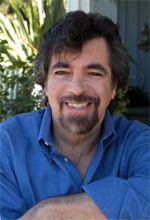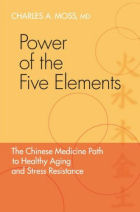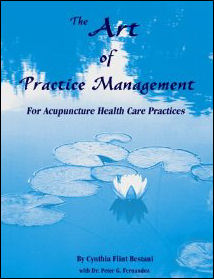Acupuncture & TCM Articles

Neil R. Gumenick is the founder and Director of The Institute of Classical Five-Element Acupuncture. Neil is a Worsley certified advanced teacher of Classical Five-Element Acupuncture and a practitioner with over 27 years of private practice experience. Neil holds three degrees from the College of Traditional Acupuncture (U.K.), and he participated for 10 years in the Master Apprentice Programô, led by Profs. J.R. & J.B. Worsley. Neil has taught at the USC and UCLA Schools of Medicine, the Worsley Institute of Classical Acupuncture, the Traditional Acupuncture Foundation, California Acupuncture College, Santa Barbara College of Oriental Medicine, and Pacific College of Oriental Medicine. He has been a Professor at Emperor's College of Traditional Oriental Medicine and SAMRA University of Oriental Medicine. Neil is co-author of The Art of Practice Management for Acupuncture Health Care Practices
Classical Five-Element Acupuncture: Dispelling the Myths
By Neil Gumenick, MAc (UK), LAc, Dipl. Ac
In teaching classical five-element acupuncture over the years, I have encountered several major misunderstandings surrounding the theory and practice of this system. The following discussion is intended to dispel some misconceptions.
Though parts of the article make reference to specific acupuncture points and techniques that will be familiar to most practitioners, the underlying message transcends the necessity of any prior knowledge of this or any other system of medicine. It affirms that each patient is unique, with individual physical, mental and spiritual needs and, therefore, cannot be treated the same as anyone else.
Myth: Four Needle technique is used for tonification or sedation on virtually every patient.
 
Fact: Four Needle technique is a specialized use of the law of five elements and is used in extreme and very rare instances. Using this technique more than twice in a given year would be unusual. Four Needle technique is used as a last resort when the energy is virtually stuck and the patient is not responding to the kinds of treatment strategies that, in the vast majority of cases, assist nature to restore balance and harmony. These strategies include, but are not limited to, assessing the presence (and removal) of specific energetic blocks; transfers of energy (which includes the use of tonification, sedation, junction/connecting and other element points); source points; horary points; CV (Ren) and GV (Du) points, associated effect (back shu) points; and a multiplicity of points chosen for their spiritual connotations (to reach the level of the disease). Having failed with these means, if the energy still does not respond, then it is appropriate to consider the Four Needle technique.
Myth: If the "child" is deficient, tonify the "mother"; if the "child" is excess, tonify the "grandmother."
Fact: This is an oversimplification which implies that there are only two causes of an excess or deficiency. The reasons for an excess or deficiency in any patient are as unique as the individual who has the symptoms. The job of the classical five-element acupuncturist is to find out why this specific person is manifesting imbalance at this particular time. An excess or deficiency in an element or organ/function can be the result of an imbalance that originates in any element or organ/function. The originating imbalance invariably upsets the balance throughout the system, and can manifest anywhere. The presence of an energetic block; trauma to the mind and spirit; imbalance or pollution within an organ; disharmony between paired organs/functions within an element - to name a few - can cause imbalances that manifest as excess or deficiency. The ensuing treatment seeks the source of the imbalance, not the overt symptom.
Myth: The element requiring treatment is determined from the patient's symptoms.
Fact: Central to our system is the certainty that any symptom (physical, mental or spiritual) can come from any of the five elements or the 12 officials (organ/functions) in distress. A symptom only alerts us that something is going wrong. It is a cry for help. It does not necessarily tell us its cause.
Professor Worsley often uses the analogy of a red warning light igniting on the dashboard of a car. We could certainly eliminate the symptom - the warning - by unscrewing the light. Does this resolve the problem? No, and the next warning will be more serious and dangerous as the ignored underlying cause only worsens.
Nature tells us the cause of a patient's symptoms (regardless of their labels) in four clear and concise ways. At the moment an imbalance occurs, which may be months or years before symptoms manifest, the color in particular areas of the face; the sound of the voice; the emotions; and the odor change, express inappropriately, and point to the elemental causative factor.
We all have a causative factor with which we are born, or acquire in the formative years of life. The causative factor is the element among the five which has been so damaged by internal or external stress and trauma (including hereditary factors) that it becomes unable to fully recover. It becomes the weak link in our system and the root cause of the diseases we manifest on all levels.
The causative factor does not change from one element to another, regardless of how symptoms change with time. Therefore, the thrust of our treatment is to help, support and restore the balance of the causative factor in the exact way needed by each unique and individual patient. In this way, symptoms (which are only the expression of the underlying imbalance) resolve naturally. No two patients are ever treated the same, even those presenting identical symptoms or having the same causative factor. Treatments are rarely, if ever, repeated on the same patient. If a treatment is successful in moving a patient from step A to step B, there is no need to retrace those steps. We need to move to step C and so on as the journey toward health continues.
Myth: Classical five-element acupuncture is fine for addressing those rare and ethereal matters of the spirit, but it is basically useless for addressing physical symptoms.
Fact: The vast majority of physical symptoms are expressions of problems at the deeper levels within a patient. Treating the physical level is of little use, except palliative, if the problem resides at the level of the mind or spirit. The ancient Chinese knew that all human beings manifest on all levels all the time and that we are one interconnected whole. Therefore, one cannot be imbalanced at one level without it affecting the others.
In this age and culture, the majority of patients are imbalanced at the level of the spirit. In pre-industrialized societies (as in today's Third World countries), the majority of illnesses were the result of physical exposure to the elements. If one worked the land and was excessively exposed to cold, wind, heat, wet, etc., one tended to get illnesses as a result of such exposure. Treating the physical level in such circumstances is appropriate.
Today, despite physical improvements in living and working conditions, in which we are not overly exposed to the external causes of disease, there is as much (or more) physical illness as there ever was. Even more devastating is the increase in mental and spiritual illness. Why is this? We who have so much "more" are certainly not happier or at peace with ourselves and with each other. The pathogenic factors to which we are exposed are the product of the stresses to compete, to outdo, out-think, and accumulate ever more. We live in an age not of cooperation, but largely of isolation. In generations past, people lived amidst the support of a whole village or neighborhood.
Today, two out of every three first marriages end in divorce. In more than half of marriages, both parents work. Typically, they are tired, strained, physically and emotionally over-extended, leaving little time, patience or enthusiasm for the most important work of all: the raising of our children. It is not a mystery why so many children grow up feeling neglected, abandoned, distrustful, and in some cases, abused. Today, the internal pathogenic factors such as anxiety, anger, fear, lack of joy, grief and worry are causing the same (and worse) physical maladies as did the external factors.
Invariably, the trauma to the mind and spirit must affect the physical body. Each of the officials (organ/functions) has a physical, mental and spiritual expression. It is impossible to find a spiritually traumatized official manifesting radiant physical health. Sooner or later, the body must break down. To truly heal the body, we must treat at the level of the cause.
Myth: We have taken one small piece of Oriental medicine and have created a "cult" around it and its foremost proponent, practitioner and teacher, Professor J.R. Worsley.
Fact: The five elements are anything but small. Any phenomenon or process is an expression of the never-ending cycle of change the elements describe. Consider the seasons of the year and how they express the stages of movement between the polarities of yin and yang. Each of the seasons presents a unique quality without which the creation would be impossible. Every phase of our lives, like every process, starts with a beginning, comes to fruition and harvest, declines, decays, and disappears - arriving at a state of rest and recharge, gathering energy for the next beginning. The ancient Chinese knew that man and woman are but extensions of the laws that govern all aspects of the cosmos: the microcosm within the macrocosm. Everything that we are -- physically, emotionally, mentally and spiritually -- can be clearly seen and understood through the template of the five elements.
A good acupuncturist is like a good farmer who, by looking at a crop that is failing, knows the reason why and knows what element is imbalanced. There may be too much (or not enough) sun; the wrong kind of soil; insufficient minerals and trace elements; too little or too much water; or a seed incapable of growth. Knowing the cause, if the disease has not progressed beyond the reach of nature to reverse, is the key to developing a successful treatment. Once the corrective adjustments are made, the crop (like the patient) will recover, not by magic, but by natural law.
As to the reverence and love that many of us feel for our teacher and master, J.R. Worsley, I can only say this: In my 22nd year of studying with him, my tears of gratitude and love come more readily than ever. The absolute miracles that I witness every day in my practice, the fact that I have the privilege to hold this system of medicine in my hands and offer it to sick people, I owe to J.R.
He saved my own life and the lives of my wife and daughter - both of whom would have been lost during pregnancy when no other system of medicine offered any hope. We are all healthy today. I can best express my gratitude by trying to live my life, conduct my practice and my school in a way that is worthy of the love, knowledge, inspiration and support that I have been given and continue to receive from J.R. and Judy Worsley.
As was the experience of countless generations in China, ours is a living, oral tradition, in which a master bestows knowledge to students in an apprenticeship that embodies more than book-learning, words or videos. Direct transmission and hands-on guidance in the presence of patients in need is the means of transforming ourselves into instruments of healing.
 
The Art of Practice Management for Acupuncture Health Care Practices
What you will find in this book is a specific, comprehensive approach that gets to the root cause of success in practice.
This new book presents acupuncture practice as art from the standpoint of centering, qi, and wholeness. It builds on the premise that practices succeed from bridging inner and outer aspects of the self. It is an inquiry into the self and addresses clear understandings and approaches to reputable patient care and practice qi. It brings in the five elements and work with the seasons of practice from training and start-up to growth, stability, expansion and transformation. The authors artfully bridges the essence of both patient and practitioner well-being without excluding the practicalities of financial well-being. This book very specifically and extensively shows how the different parts of practice nourish and feed one another and are interdependent on one another for the qi to flow synchronistically.
It explores the dual nature of procedures that work and those which do not in acupuncture health care practice, returning again and again to the delicate balance of practicality and spirituality.
|
